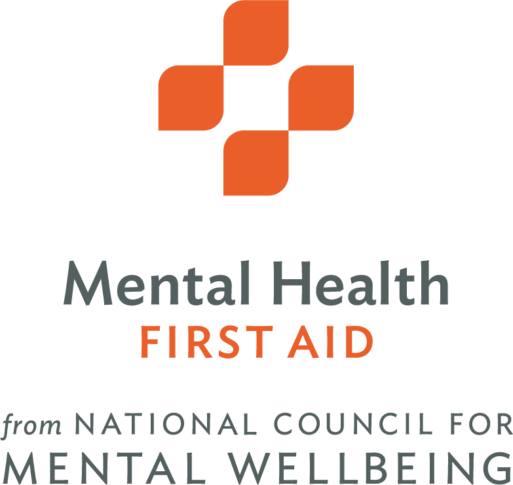
(7-13-22) Mental Health First Aid, a widely popular national training program, is being called “ineffective” in a scathing report issued by the Manhattan Institute, a New York City based conservative think tank.
A newly released study, Mental Health First Aid: Assessing the Evidence for a Public Health Approach to Mental Illness, concludes that the training program fails to “connect mentally ill individuals…with an appropriate level of treatment before a crisis leads to tragedy.”
The goal of the training program is “to teach everyday citizens how to identify, understand, and respond to signs of mental illnesses and substance abuse disorders,” the report’s author, Carolyn D. Gorman, writes. She notes that more than two million Americans have completed MHFA training. Some police departments have elected to use MHFA’s three-day training program rather than the more comprehensive 40 hour Crisis Intervention Team training program.
But Gorman writes there is scant evidence that the program actually benefits or impacts the lives of individuals with symptoms of serious mental illnesses.
In an email exchange, she explained: “Just to be clear, there was no evidence the program helped even non-mentally ill individuals. Mental health was not improved among recipients of MHFA, for those with no baseline need for mental health care, nor for those with a baseline need for mental health care. I make the point only because I often hear arguments that those who take MHFA training ‘feel good that they took the training’ but even for the average person, it is no better than having no training.”
MHFA originated in Australia before being brought to the U.S. where it is promoted and sold to groups by the National Council for Mental Wellbeing (formerly the National Council for Behavioral Health.) The National Council represents the nation’s mental health care industry. MHFA sales account for several million dollars of income each year for the organization.
Researcher Gorman said she reached her conclusion after studying twenty years of MHFA evaluations. She writes that the evaluations focused on whether people who completed MHFA training “found it helpful, rather than measuring the program’s effectiveness in helping its intended beneficiaries—those with mental illness.” She noted that “One meta-analysis finds that of 181 articles on MHFA, 90% focused on the educational benefits for trainees, and none focused on the effectiveness of patient help-seeking behavior.”
“MHFA trainees reported feeling more confident in their ability to help those in crisis,” she writes, “but did not report actually providing help more often.”
MHFA became popular after the Sandy Hook murders in 2012. President Barack Obama proposed $15 million in funding for MHFA to train teachers in detecting and responding to mental illness in adolescents In 2015, Congress passed the Mental Health First Aid Act, which provided $20 million for training aimed at the general public. At least 20 states have separately funded MHFA since then. Gorman reports that in fiscal year 2022, the federal government earmarked nearly $24 million for MHFA style programs. That number jumped in FY2023 to a requested $64 million.
In an email, Gorman added:
The recently passed gun legislation, the Safer Communities Act, included $120 million to MHFA (codified in law as “Mental Health Awareness Training). It also gives $240 million to Project AWARE, a very similar initiative that does mental health awareness training. But the law only includes $60 million for training *actual* primary care clinicians / pediatricians to provide mental health care, even though primary care doctors are much more likely to be in a position to help a mentally ill individual than any given person in the public, by nature of that being their job. And only $80 million goes to pediatric mental health care access. Even if MHFA worked, which it does not, what good is “awareness” among the public if there’s limited access to care?
While educating the public about mental disorders might help reduce stigma, Gorman argues that “mental illness can’t yet be prevented.” Instead of promoting and spending federal funds on MHFA-like programs, Gorman argues that the public would be better served with great use of Assisted Outpatient Treatment and Assertive Community Treatment programs.
She warns that “preventing mental illness” too often “becomes an excuse to dole out public dollars to any given concern of the day.”
“In his 2022 State of the Union mental health strategy, for example, President Biden suggests mental health funding be used to stop “discriminatory algorithmic decision-making that limits opportunities for young Americans”—such as when a girl (as opposed to a boy) searches for jobs online and is not immediately shown fields for engineering—because when “people are treated unfairly, it can have mental health impacts.”
“To be clear, mitigating social and economic problems is a worthy policy goal, but almost none of the individuals who experience one of these common adverse life events will go on to develop a psychiatric disorder that leaves them gravely disabled or leads them into crises like violence, incarceration, or homelessness.”
Gorman writes that “the prevalence rate of schizophrenia is incredibly low, with estimates typically below 2%. And the prevalence of any serious mental illness is estimated to be around only 5%. If mental health spending is not directed primarily toward those with serious mental illness, at risk of crisis from mental illness, and in need of treatment for mental illness, these individuals will receive public support to a lesser extent than others who may receive support through programs delivered by non–mental health agencies.”
The report’s executive summary notes:
• No studies demonstrate evidence that MHFA serves its purpose of helping individuals with mental illness in crisis, whether to connect them with treatment or improve their symptoms.
• Studies of MHFA largely measure success based on outcomes that are irrelevant to whether the targeted population benefits from the program.
• MHFA ignores the primary barriers to managing crises, such as scarce specialty health-care providers and services and insufficient treatment access for the mentally ill most at risk of crisis.
• Programs that aim to prevent mental illness should be met with skepticism, as the causes of mental illness are not fully known, and early intervention should target those most at risk.
You can read Gorman’s full report here.
TOMORROW: The National Council responds.
ABOUT THE AUTHOR: Carolyn D. Gorman is an adjunct fellow at the Manhattan Institute, where her research examines how policy changes in the U.S. health and judicial systems affect individuals with serious mental illness. She served on the board of the former Mental Illness Policy Org., a nonprofit founded by the late DJ Jaffe, and as staff on the U.S. Senate Committee on Health, Education, Labor and Pensions. Previously, Gorman was the senior project manager for mental illness policy at Manhattan Institute and has held research and policy positions in the private and nonprofit sectors. Her writing has appeared in the Wall Street Journal, New York Daily News, New York Post, City Journal, National Review, The Hill, and the peer-reviewed Psychiatric Services. Gorman holds a B.A. from Binghamton University and an M.S. in public policy from the Robert F. Wagner Graduate School of Public Service at New York University. 



